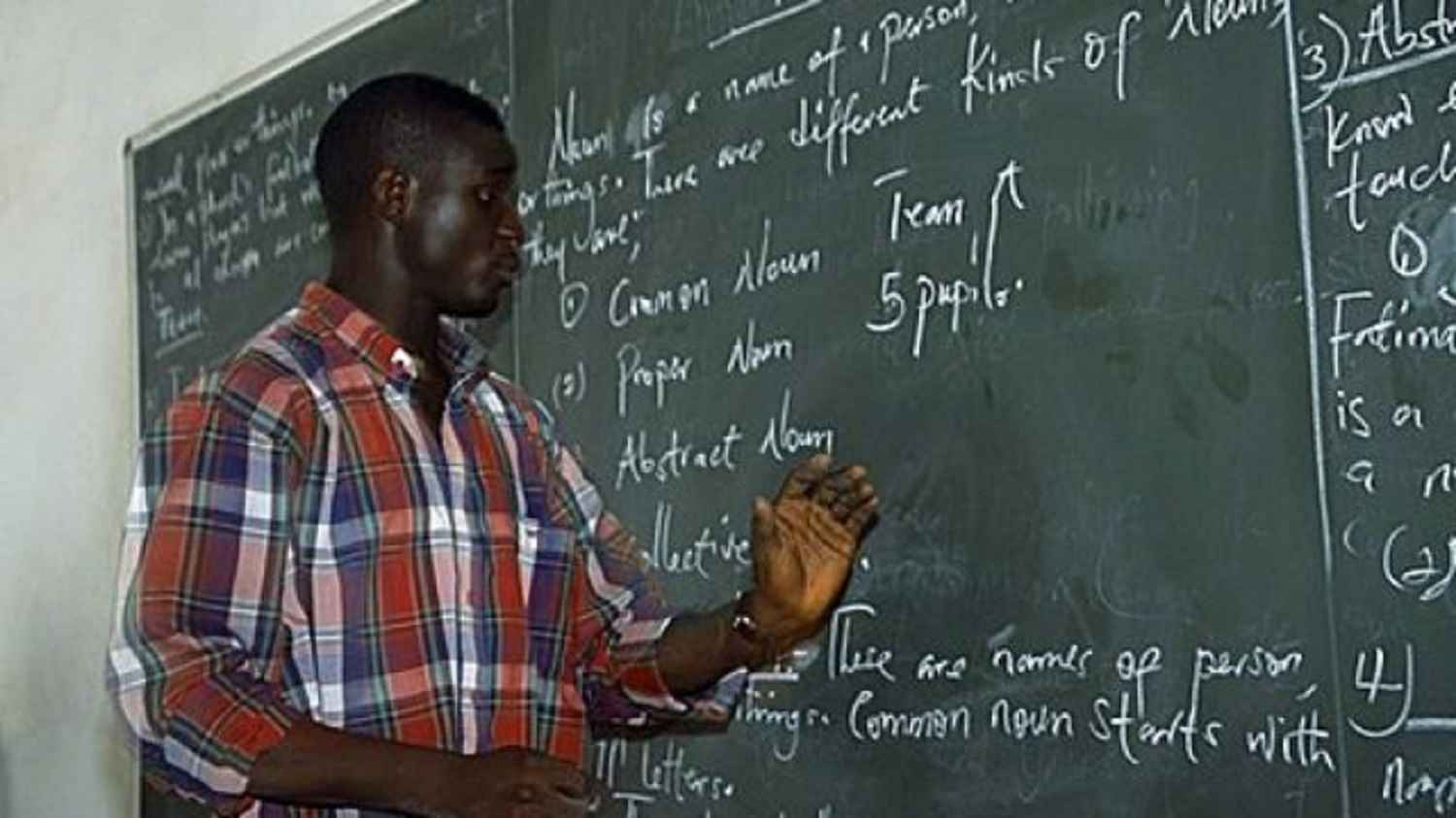EDUCATION

WORLD TEACHERS’ DAY: NIGERIAN TEACHERS COMPLAIN OF POOR WELFARE, LACK OF RECOGNITION
Last week, Nigeria joined the global community in commemorating World Teachers’ Day, an occasion that brought mixed emotions for many educators across the country.
While the celebration served as a tribute to teachers’ invaluable contributions, it also reignited conversations about their persistent challenges, including poor welfare, delayed policy implementation, and inadequate teaching infrastructure.
The Federal Government reaffirmed its commitment to improving the welfare, recognition, and professional development of teachers across the nation. The Minister of Education, Maruf Olatunji Alausa, alongside the Minister of State for Education, Prof. Suwaiba Said Ahmad, restated this during a symposium held ahead of the official event on October 5.
This year’s global theme, “Recasting Teaching as a Collaborative Profession,” underscored the need for stronger partnerships and collective action in the education sector.
Across various states, teachers’ unions and education stakeholders lamented that slow government action, poor remuneration, and the absence of adequate teaching facilities continue to weaken Nigeria’s education system. They urged both federal and state authorities to prioritize teachers’ welfare and fulfill promises made to the sector.
The National President of the Nigeria Union of Teachers (NUT), Comrade Audu Amba, in a goodwill message delivered nationwide, called for increased investment in public education and deliberate efforts to uplift teachers’ status.
“Without deliberate investment in teachers, the future of education is at risk,” Amba stated. “Governments must raise budgetary allocations to education and ensure a conducive learning environment that guarantees quality outcomes.”
He further commended Nigerian teachers for their courage, resilience, and patriotism, assuring them that the union would continue to advocate for their recognition and rightful place in society.
Meanwhile, several state governors across the federation praised teachers for their dedication, resilience, and immeasurable contributions to the growth and development of society.
“To every teacher in our primary, secondary, and tertiary institutions, your impact is immeasurable,” one statement read. “The foundation you lay in the lives of our children determines the future of our nation. We urge you to remain steadfast and committed to upholding the highest standards of your profession.”
Similarly, the National Association of Proprietors of Private Schools (NAPPS) urged all levels of government to address the pressing challenges facing private school owners and teachers, particularly in the areas of taxation, welfare, and access to financial support.
“We are not in competition with the public sector,” the association noted. “Our shared goal is to ensure quality education for all, especially in communities where public resources are stretched.”
However, many teachers—both in private and public schools—expressed deep frustration over the state of their profession. They lamented being undervalued and underpaid, despite their pivotal role in shaping future generations.
A chemistry and mathematics teacher, Michael Divine, remarked:
“To be frank, World Teachers’ Day should not even be celebrated in Nigeria. Teachers here are neither valued nor appreciated. In many private schools, we are treated like slaves. Even when students pay as much as ₦200,000 in tuition, teachers barely earn ₦50,000.”
Another teacher, Victor Ngbede, described the situation as discouraging, citing poor remuneration, intimidation by school owners and parents, and policies that deny teachers their basic rights.
“Parents rarely visit schools to appreciate teachers. Many only show up to argue or complain over minor issues. From my observation, only about 5% of private school owners genuinely care about their teachers’ well-being,” he said.
For Samson Igwe, societal perception adds another layer to the challenge. He noted that many young teachers struggle socially because of the low regard attached to the profession.
“Once people hear you’re a teacher in Nigeria, they look down on you—even when it comes to marriage. It’s disheartening,” he lamented.
He further added that corporate bodies and philanthropists often overlook teachers in their empowerment programs, choosing instead to assist professionals in better working conditions.
“You hardly see anyone supporting teachers. Yet, we are the ones shaping every other profession,” he concluded.
"This represents a significant development in our ongoing coverage of current events."— Editorial Board









